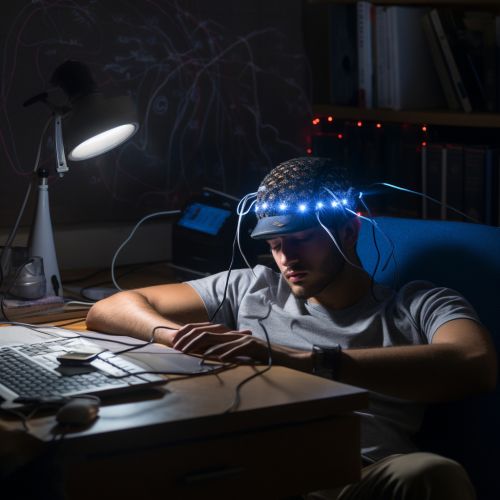The Science of Human Sleep Cycles
Introduction
Human sleep cycles are a complex and fascinating aspect of human biology. They are the result of a finely tuned interplay between various neurotransmitters, hormones, and neurons in the brain. The science of human sleep cycles is a multidisciplinary field that encompasses neuroscience, psychology, physiology, and genetics.


Understanding Sleep
Sleep is a naturally recurring state of mind and body that is characterized by altered consciousness, reduced interactions with surroundings, inhibited sensory activity, and inhibition of nearly all voluntary muscles. It is distinguished from wakefulness by a decreased ability to react to stimuli. It is a complex physiological process that is essential for the overall well-being and functioning of the human body.
The Stages of Sleep
Sleep is not a uniform state of being. Instead, it is composed of several stages that cycle throughout the night. These stages include Non-Rapid Eye Movement (NREM) sleep, which is further divided into three stages (N1, N2, and N3), and Rapid Eye Movement (REM) sleep.


NREM Sleep
NREM sleep is characterized by the absence of rapid eye movements and encompasses the largest portion of the sleep cycle. It is during this time that the body repairs and regrows tissues, builds bone and muscle, and strengthens the immune system.
N1 Stage
The N1 stage is the transition period from wakefulness to sleep. During this stage, which lasts for about 5 to 10 minutes, the brain produces high amplitude theta waves, which are very slow brain waves.
N2 Stage
The N2 stage is a period of light sleep before entering deeper sleep stages. The heart rate slows down and body temperature decreases. During this stage, which lasts for about 20 minutes, the brain produces bursts of rapid, rhythmic brain wave activity known as sleep spindles.
N3 Stage
The N3 stage is a period of deep sleep that you need to feel refreshed in the morning. It is during this stage that the body repairs and regrows tissues, builds bone and muscle, and strengthens the immune system. During this stage, the brain produces delta waves, which are slow waves with high amplitude.


REM Sleep
REM sleep is characterized by random and rapid movement of the eyes, increased respiration rate, and increased brain activity. It is during this stage that dreams occur. The brain waves during this stage appear similar to those during wakefulness. REM sleep is thought to play a role in learning, memory, and mood regulation.
The Sleep Cycle
A complete sleep cycle takes an average of 90 to 110 minutes, with each stage lasting between 5 to 15 minutes. The sleep cycle begins with N1 stage, progresses to N2, then N3, then back to N2 before entering REM sleep. This cycle is repeated 4-5 times throughout the night.


Factors Influencing Sleep Cycles
Several factors can influence sleep cycles, including age, lifestyle, diet, and medical conditions. For example, as people age, they tend to spend less time in REM sleep. Lifestyle factors such as stress and physical activity levels can also affect sleep cycles. Certain foods and drinks, such as caffeine and alcohol, can disrupt sleep cycles. Medical conditions such as sleep apnea and insomnia can also interfere with normal sleep cycles.
Importance of Healthy Sleep Cycles
Healthy sleep cycles are crucial for physical health, mental health, quality of life, and safety. Disruptions in sleep cycles can lead to a range of health problems, including heart disease, kidney disease, high blood pressure, diabetes, stroke, obesity, and depression. Healthy sleep cycles also support healthy brain function and maintain emotional health.
Conclusion
Understanding the science of human sleep cycles can provide valuable insights into human health and well-being. It is a complex and fascinating field that continues to evolve as researchers uncover more about the intricate mechanisms that govern sleep and wakefulness.


